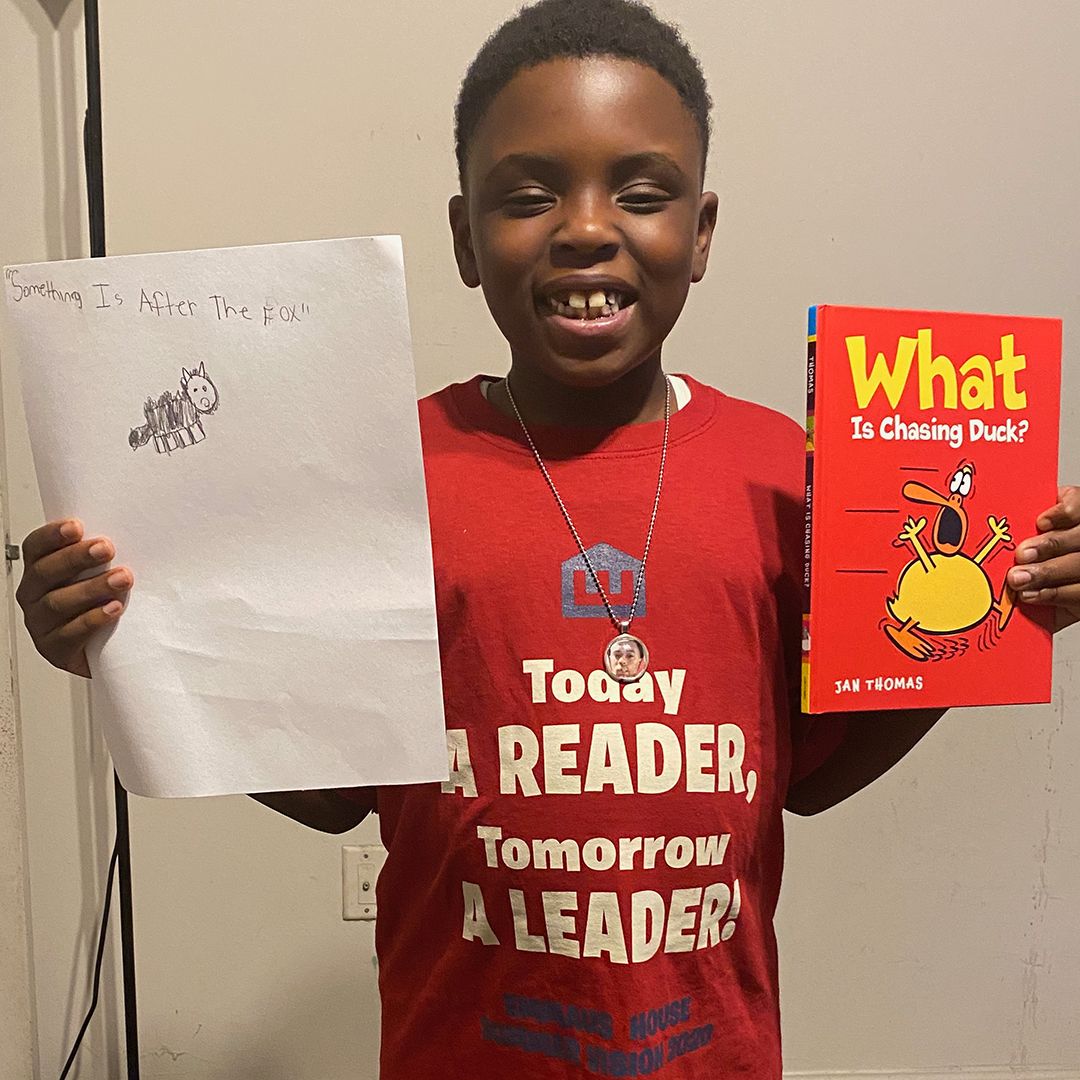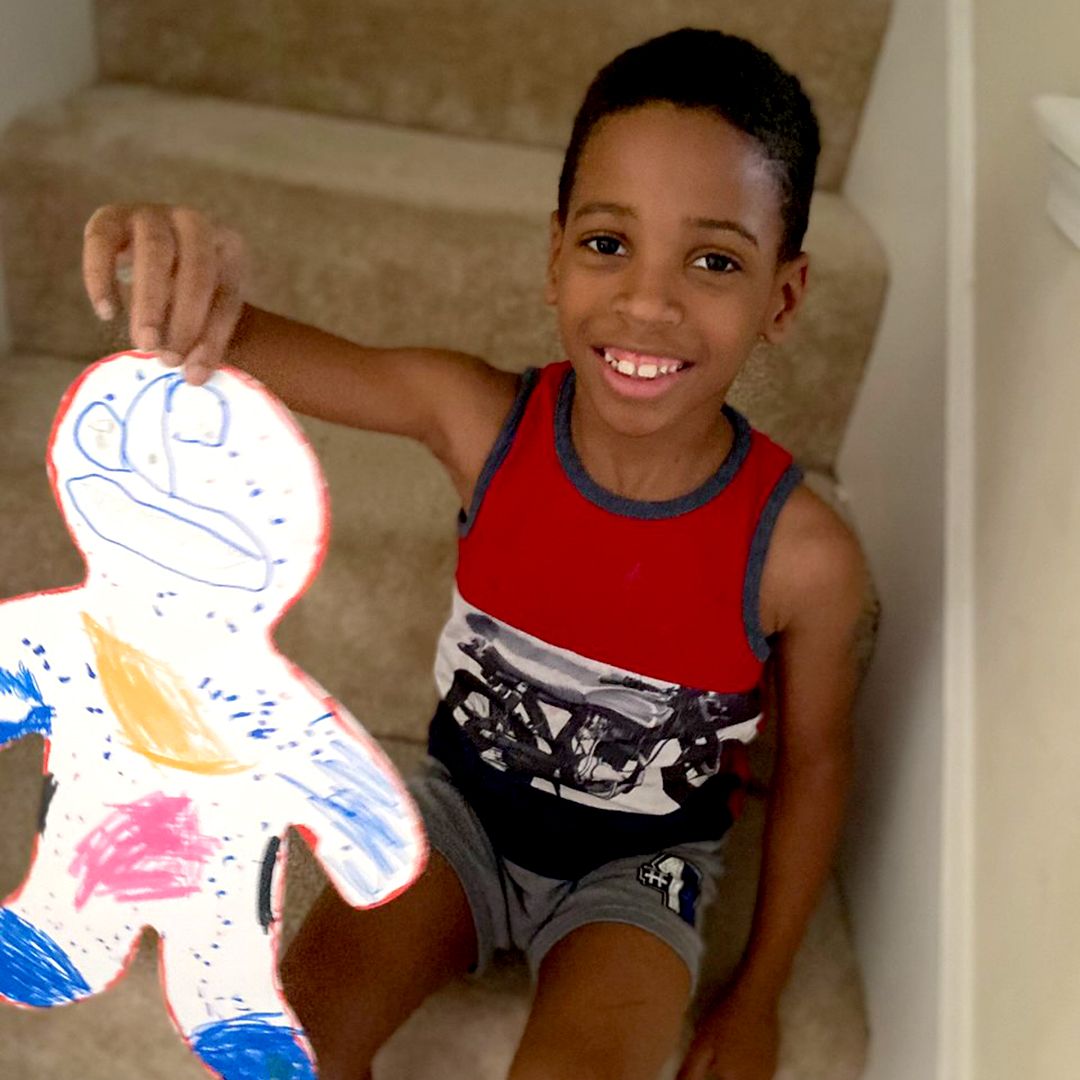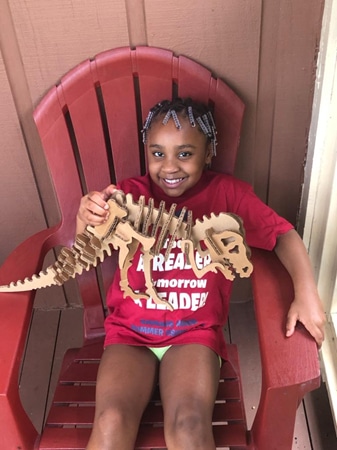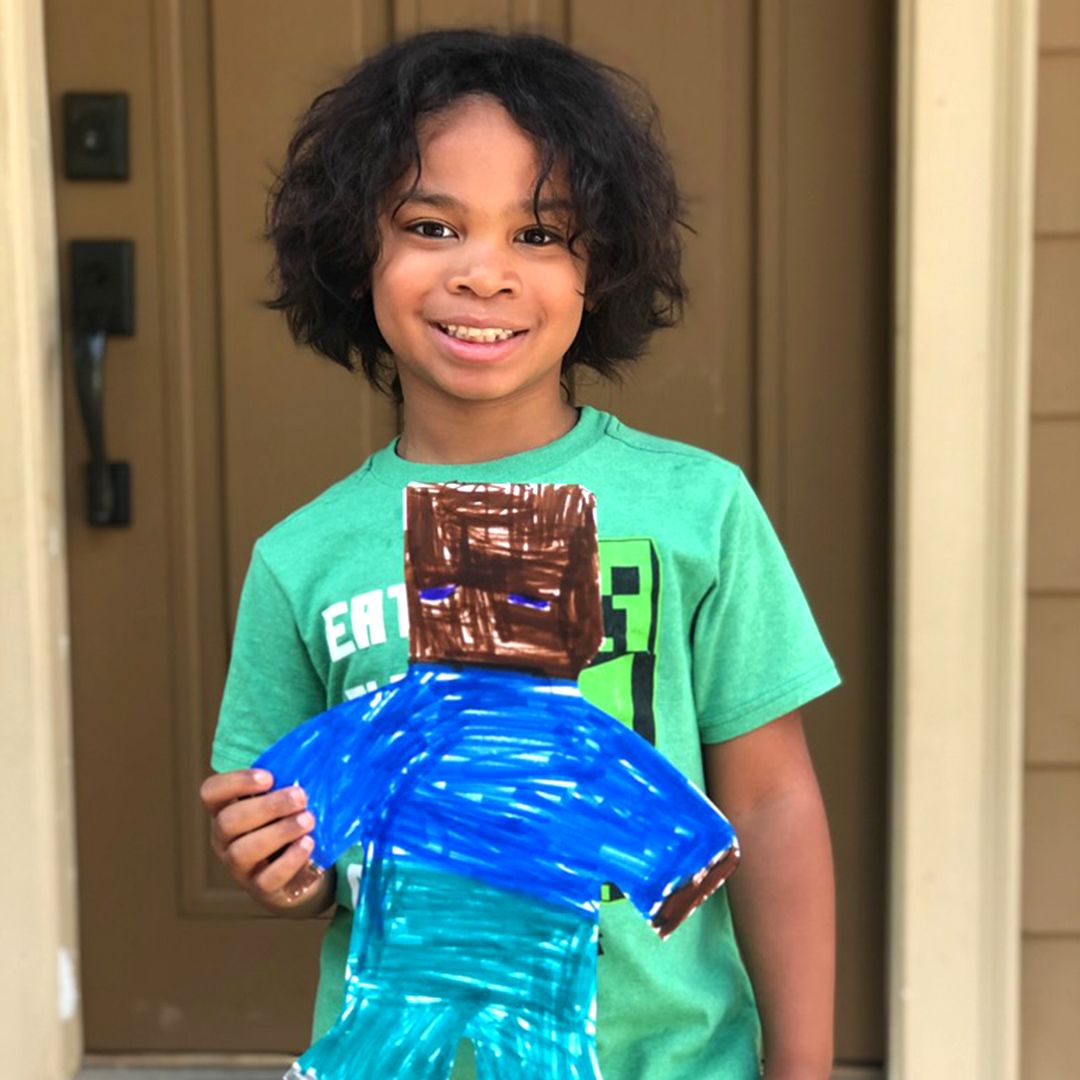Pivoting Toward Possibility in Peoplestown

By Melissa Brogdon
Grant Consultant, Emmaus House
Emmaus House’s Freedom School program has provided a haven of support, love, and learning for elementary-aged students living in the Peoplestown neighborhood of Atlanta and surrounding communities for the last five summers. As soon as the doors closed in the summer of 2019, Ann Fowler, director of education services, began imagining the possibilities for 2020 programming.
Students access literacy coaching and other academic interventions for six weeks each summer through Emmaus House’s neighborhood school partnership with Barack and Michelle Obama (BaMO) Academy, which hosts the Children’s Defense Fund Freedom Schools® program.
“The curriculum and content for Freedom School comes directly from Children’s Defense Fund based in Tennessee—but the loving parents, engaged school partners, and student leaders collaborate and plan for a summer of learning right here in Peoplestown,” said Fowler.
Funding from Coaching for Literacy (CFL) received through Emmaus House’s partnership with the Get Georgia Reading Campaign supports the expansion of the Freedom Schools® program in order to combat the “summer slide” for at-risk children.
“Emmaus House’s work strengthens all four pillars of the Get Georgia Reading Campaign and supports the whole child, while also prioritizing families and caregivers as children’s first teachers and targeting communities that have been historically underserved,” said Akia Lewis, strategic innovation and Get Georgia Reading project manager. “This programming embodies an approach that we know makes a substantial difference for children, and the outcomes of the work prove that.”
Final assessments for 2019 returned striking results: 100% of students tested via the Basic Reading Inventory maintained or increased their reading level. Team members from BaMO Academy joined the Emmaus House team in anticipation of another productive summer. Then the COVID-19 pandemic necessitated a major pivot.

While Fowler knew that serving more than 120 students as originally planned was unlikely, she also knew the consequences of inaction for students who were already disproportionately experiencing the impacts of economic disenfranchisement in their community.
Nationally, programs in neighborhoods like Peoplestown grappled with how to mitigate the impact on student achievement and health. Peoplestown reports a median per capita income of just $15,282, and just over one third of legacy residents there achieve high school graduation. School disruption for Peoplestown students leads to limited access to healthy meals, missed connections with supportive school staff, and substantial learning loss.
“Many of the students we serve are already at risk of summer learning loss and may be well behind grade level in reading and math,” said Fowler. “Without something or someone standing in the gap, it will widen.”
Fowler and her partners at BaMO Academy determined which components of Freedom School could be captured and consolidated. The team crafted Vision 2020, a six-week virtual reading program that was augmented by family-based learning projects and ongoing outreach from school leaders and volunteers.
Vision 2020 reached 40 rising second- and third-grade students from BaMO Academy. Scholars read 901 books, logged more than 10,700 minutes of reading, completed weekly art projects, learned motivational songs, and worked on daily lessons with tutors.
Continued support from the Get Georgia Reading Campaign and CFL allowed for an easy pivot to quickly implement a virtual learning environment with a literacy-focused plan, and also led to International Paper donating materials for a science-based, sensory activity for students. Members of The Cathedral of St. Philip, The Episcopal Church of the Epiphany, and many others donated books.

Emmaus House scholars received books every Friday with their favorite characters and topics of interest, building home libraries and fostering a love of reading. Members of St. Martin in the Fields Episcopal Church and School also supplied groceries to students’ families each week.
Vision 2020 was designed for optimal engagement and designed to provide tools that parents need to support students while also encouraging independent learning and exploration. This balance helped parents actively participate with their students without overwhelming them as they navigated working from home or finding services to supplement income after job loss.
“The virtual summer reading program has been so good for my family,” said parent Alicia DeCriscio. “The structure and one-on-one sessions have helped keep Samuel’s skills fresh and ready for second grade. We’ve enjoyed the art supplies and treats the whole family could enjoy. This pandemic has been hard on us all, and we’re thankful to Emmaus House for bringing light into the community.”
Ayana Cottman, a fellow Peoplestown resident and member of the Emmaus House Advisory Board, said her daughter, Maia, read 24 chapter books while taking part in Vision 2020.
“I am so proud to be part of the Barack and Michelle Obama Academy and Emmaus House community,” said Cottman. “Serving on the Emmaus House board, I hear about the wonderful programming—but this year I was able to experience it firsthand. Maia had a great virtual summer reading experience.”

Instead of in-person field trips to the zoo or swimming pool, Vision 2020 scholars engaged in special projects each week such as one centered on environmental recycling, earning top scores from the scholars on the summative evaluation.
Emmaus House has plans for a Vision 2020 remix this fall with endless possibilities for students to engage in literacy-based supplemental experiences during an unprecedented year of virtual learning. With the partnership with BaMo Academy well underway, the program anticipates serving more students with the support of volunteers and partners throughout the school year.
